Alzheimer’s disease and dementia feel like scary words, especially the older we get. Many of us grew up barely hearing about Alzheimer’s disease. Honestly, I think most of us likely pronounced wrong, saying “Alls-timers” instead of Alzheimer’s. When you hear that word, the first thing that comes to mind is old age. At least for me it does. The second thing that comes to mind is memory loss.
We may have heard that losing your memory is normal when we get a certain age. We might forget where we put something or forget why we entered a room.
This is true. As we age, we might experience some forgetfulness and that is normal. But Alzheimer’s disease and other forms of dementia are not a normal part of aging. They affect a person’s memory, behavior, personality and brain in a way that can be devastating both for that individual and their family.
This blog post is going to answer the questions so many people have when we get older….
- What is Alzheimer’s Disease?
- What is Dementia and what’s is the difference between Alzheimer’s Disease and Dementia?
- What causes dementia and Alzheimer’s?
- How does Alzheimer’s lead to death?
The best way to explain Alzheimer’s Disease is to first understand how the human brain works. How does Alzheimer’s Disease affect the brain?
Let’s Talk About the Brain
First off, it’s important to understand how our brains work normally. Then we can look at how Alzheimer’s disease affects the brain and our bodies.
The human brain weighs about 3 pounds and is made up of neurons. These are cells that make up the brain and send messages to each other, commanding the body to function the way it does.
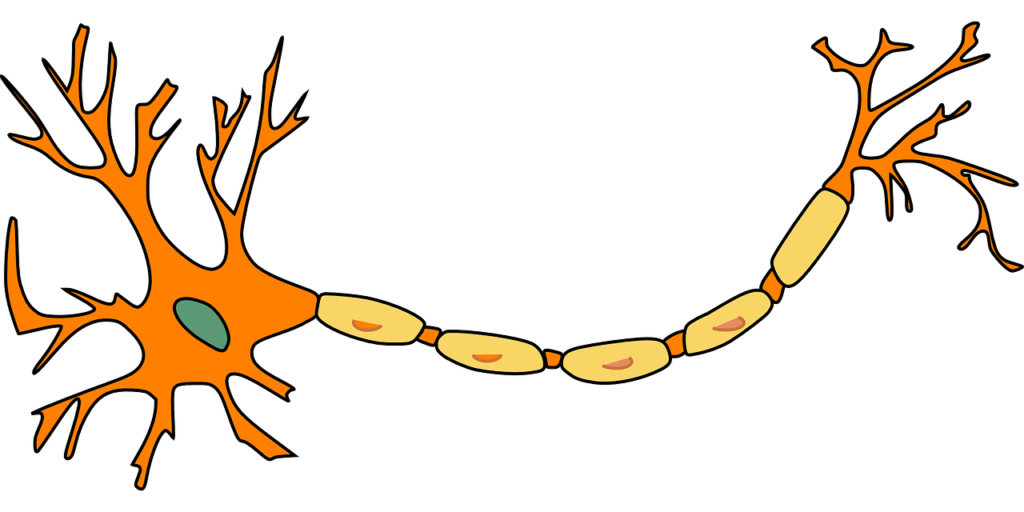
The arms you see coming out of the cell above are called dendrites. These dendrites use electrical and chemical signals between each other. They use these signals to coordinate the various functions of your body.
This video is a great video that explains how neurons work in an easy to understand way!
The Different Parts and Functions of the Brain
The brain is actually quite complex. There are many parts and aspects to the brain. But to keep things simple for the sake of your sanity and for the sake of explaining Alzheimer’s disease, We’ll divide the brain up into 3 main parts.
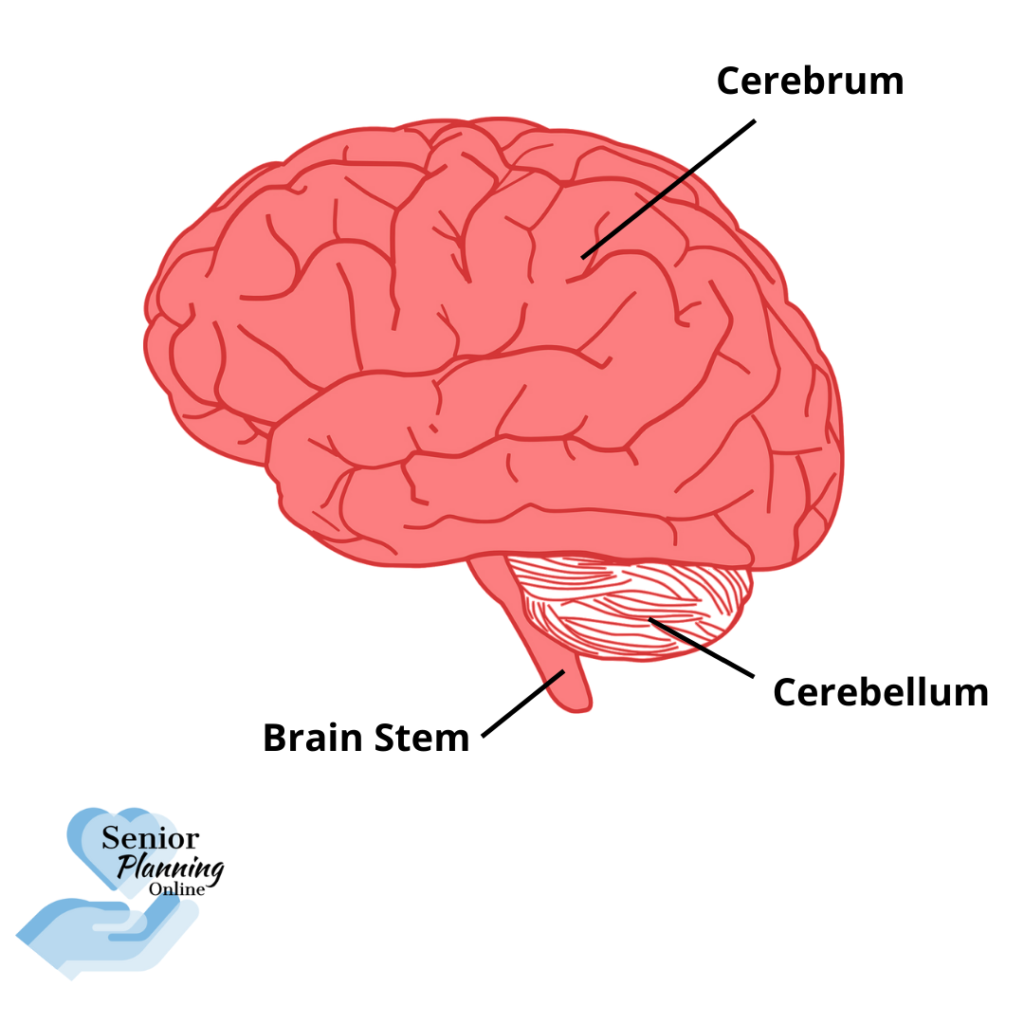
1. First is the Brain Stem
When we are inside the womb, our brainstem is what develops first. The brainstem is essentially responsible for all of our involuntary responses such as :
- Breathing
- Body Temperature
- Digestion
- Sleeping
- Eating/Swallowing
- Defecating
- Processing sensory information
2. Right above the brain stem sits a part of the brain called the Cerebellum. This is the next part of our brain that develops.
- This part of the brain is responsible for
- Balance
- Coordination
- Muscle Control
- Controlling Voluntary movements
3. The largest part of the brain is the part you think of when you think of a brain. It is made up of white and gray matter and has the various folds you see on a brain. This is called the Cerebrum.
- The Cerebrum is divided into 4 general regions. Each region has a specific responsibility that is considered “more complex” than the brain stem and cerebellum.
The 4 Lobes of the Cerebrum
Each part of the lobe is responsible for various functions.
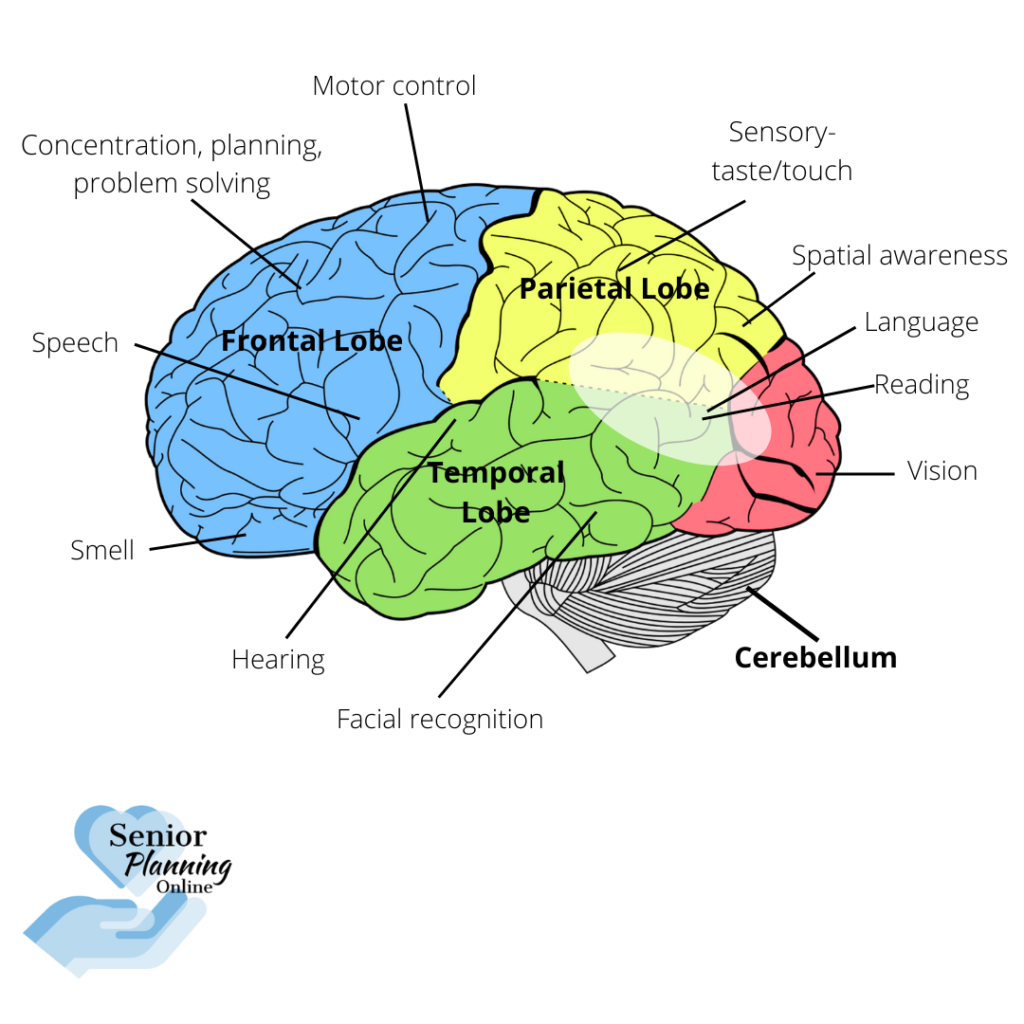
Frontal Lobe – problem solving, emotional traits, reasoning and judgement, speaking, voluntary motor activity
Parietal Lobe — Spatial awareness, knowing right from left, sensations, reading, body orientation
Occipital Lobe – Vision and color perception
Temporal Lobe – Language, behavior, memory and hearing
What is Alzheimer’s?
Now that we have a brief understanding of how our brain functions and what I controls, we can talk about the cause of Alzheimer’s and what it is.
Alzheimer’s disease is a disease is one of the causes of Dementia. What is Dementia? Dementia is an umbrella term for the loss of memory, language, and other cognitive abilities. Dementia are the symptoms of different disease. There are 4 main types of dementia, with Alzheimer’s disease being the most common.
What is the Cause of Alzheimer’s Disease?
As of right now, research has shown that Alzheimer’s disease develops when certain proteins in the brain clump together and build up to form what are called plaques and tangles. Plaques and tangles get in the way of the communication between neurons and can eventually cause the neurons to die.
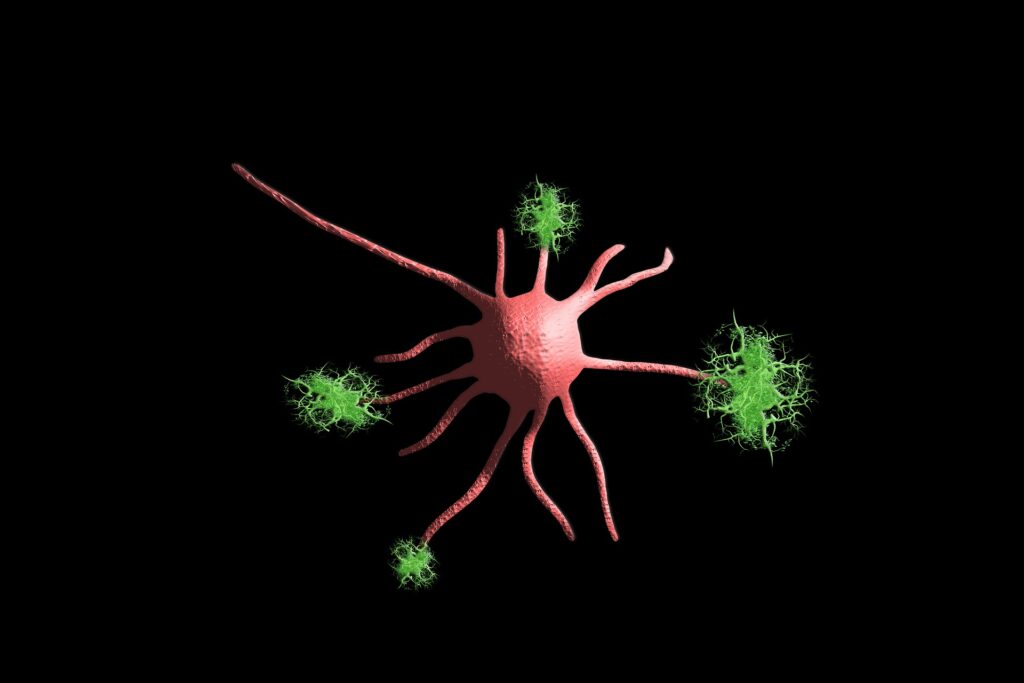
You know how they say if you don’t use it, you lose it? It’s similar with our brain. The neurons that make up our brain need to “exercise” or communicate with one another. When they are unable to , the cell dies.
As the cells die in the different parts of our brain, it causes problems with the functioning responsibilities of each part of the brain. It often starts in the brain where our memories are stored and travels throughout the different lobes of our brain.
There is a predictable pattern of what parts of the brain are affected when it comes to Alzheimer’s disease. This can also be the case with other forms of Dementia.
What is the Difference Between Alzheimer’s Disease and Dementia?
Remember, Dementia is an umbrella term that describes the symptoms that are caused by Alzheimer’s Disease.
Dementia = Symptoms
Alzheimer’s Disease= the cause of the symptoms
Can You Die From Alzheimer’s Disease?
Yes. Alzheimer’s disease is a degenerative process that results in death. Eventually it spreads to the part of the brain that controls eating, drinking, muscle and organ control.
What is the life Expectancy of a Person With Alzheimer’s Disease?
Research shows that from the time of diagnosis, the disease can last anywhere between 4-10 years. This makes it very difficult, not only for the person with the disease, but their loved ones. Sometimes catching it early allows medical professionals to treat the symptoms and maybe allow for more time. I’ll talk about this more in future posts.
If you are wanting more information about Alzheimer’s Disease and other forms of Dementia, please check out the following posts:
Stages of Alzheimer’s Disease and Warning Signs
Alzheimer’s Disease Treatment
Types of Dementia
If you are a caregiver struggling with caring for a loved one with memory loss, check out the Alzheimer’s Association for resources and help. They have a great caregiver support hotline to help you through those really hard times!

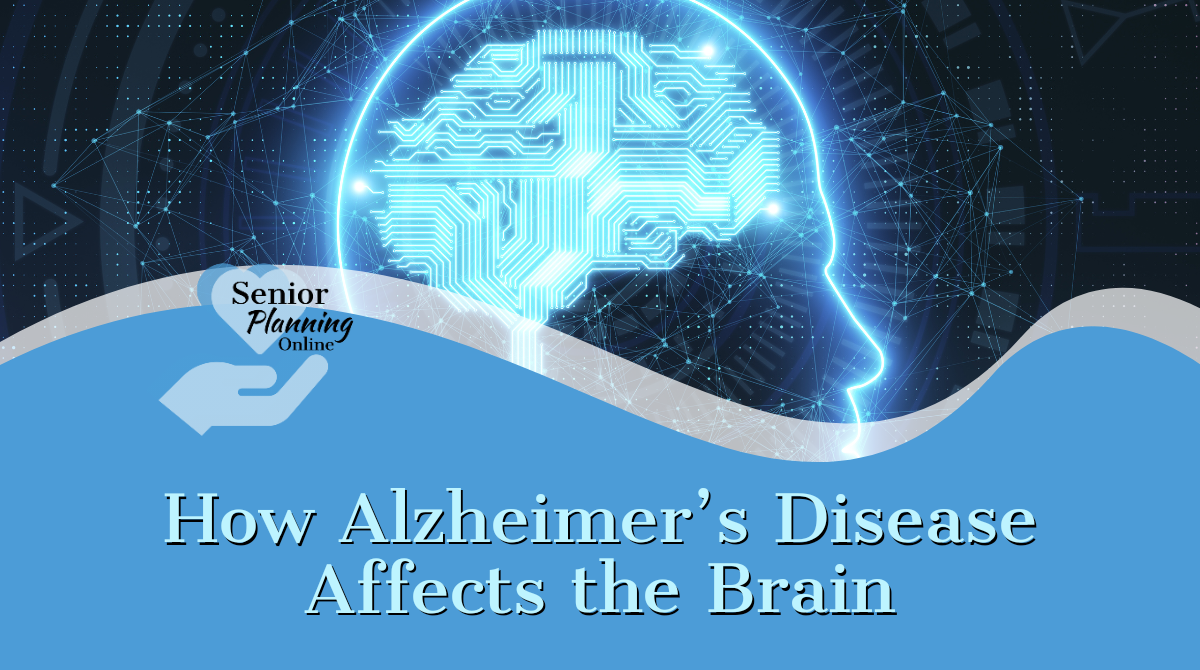
One response
[…] you haven’t checked out the post on How Alzheimer’s Diseased Affects the Brain, make sure you […]